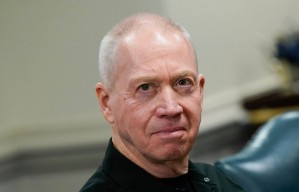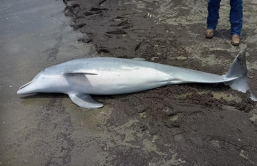Tunisian authorities announced Thursday that it is lifting a nationwide curfew declared last month following the worst bout of social unrest witnessed in the country since its 2011 revolution. A development that marks a sign of progress for the North African country, but hardly an indicator that unrest over the nation's economy is over.
"In light of the improvement in the security situation," the Interior Ministry stated, according to the Voice of America. "it was decided that from Thursday ... the curfew on all Tunisian territory will be lifted."
The 8 p.m. to 5 a.m. curfew was implemented by officials on Jan. 22 in a bid to counter large-scale demonstrations over a lack of jobs and abundance of poverty. One protester died after he was electrocuted during a Jan. 16 demonstration and an unspecified number of police officers and demonstrators were injured in various clashes.
Prior to the mandate, Tunisian President Beji Caid Essebsi admitted the protests focused on legitimate problems the country faced, but argued they were ones his government inherited from ex-President Mocef Marzouki's administration and wouldn't be fixed overnight, according to CNN.
Protests mirroring those in January also forced authoritarian President Zine el Abedine Ben Ali to flee in January 2011, making Tunisia the first of many within the Arabic-speaking region in North African and the Middle East to oust longtime leaders.
Such oustings were seen in Libya and Egypt, but were soon followed with turmoil. Tunisia is credited as being the sole exception to this trend, with the political transition between administrations being seen as relatively peaceful.
Despite this, just like with many other Arabic nations in the region, terrorism is still a persistent problem in the region, reported AFP. ISIS has been responsible for a bevy of attacks in the country, including two that left 59 foreign tourists dead - damaging the tourism industry which accounts for seven percent of the country's GDP.
Those attacks and others like it have caused the country to lose more than a third of its tourism revenues in 2015, and adding further insult to injury, investors are staying clear from the country, damaging it even more.
"The climate in Tunisia does not encourage investment," Essebsi said in a televised interview Wednesday. "We have to take reality as it is. The head of the government said he had 'no magic wand'. It's true. But a lot can still be done."








